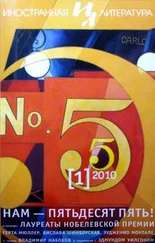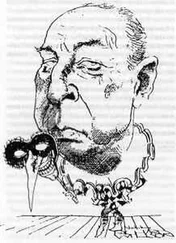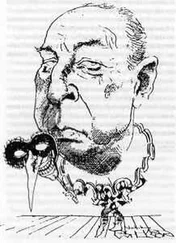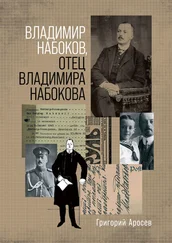Владимир Набоков - Vladimir Nabokov Pnin
Здесь есть возможность читать онлайн «Владимир Набоков - Vladimir Nabokov Pnin» весь текст электронной книги совершенно бесплатно (целиком полную версию без сокращений). В некоторых случаях можно слушать аудио, скачать через торрент в формате fb2 и присутствует краткое содержание. Жанр: Классическая проза, на английском языке. Описание произведения, (предисловие) а так же отзывы посетителей доступны на портале библиотеки ЛибКат.
- Название:Vladimir Nabokov Pnin
- Автор:
- Жанр:
- Год:неизвестен
- ISBN:нет данных
- Рейтинг книги:4 / 5. Голосов: 2
-
Избранное:Добавить в избранное
- Отзывы:
-
Ваша оценка:
- 80
- 1
- 2
- 3
- 4
- 5
Vladimir Nabokov Pnin: краткое содержание, описание и аннотация
Предлагаем к чтению аннотацию, описание, краткое содержание или предисловие (зависит от того, что написал сам автор книги «Vladimir Nabokov Pnin»). Если вы не нашли необходимую информацию о книге — напишите в комментариях, мы постараемся отыскать её.
Vladimir Nabokov Pnin — читать онлайн бесплатно полную книгу (весь текст) целиком
Ниже представлен текст книги, разбитый по страницам. Система сохранения места последней прочитанной страницы, позволяет с удобством читать онлайн бесплатно книгу «Vladimir Nabokov Pnin», без необходимости каждый раз заново искать на чём Вы остановились. Поставьте закладку, и сможете в любой момент перейти на страницу, на которой закончили чтение.
Интервал:
Закладка:
Vladimir Nabokov
Pnin
Chapter One
1
The elderly passenger sitting on the north-window side of that inexorably moving railway coach, next to an empty seat and facing two empty ones, was none other than Professor Timofey Pnin. Ideally bald, sun-tanned, and clean-shaven, he began rather impressively with that great brown dome of his, tortoise-shell glasses (masking an infantile absence of eyebrows), apish upper lip, thick neck, and strong-man torso in a tightish tweed coat, but ended, somewhat disappointingly, in a pair of spindly legs (now flannelled and crossed) and frail-looking, almost feminine feet.
His sloppy socks were of scarlet wool with lilac lozenges; his conservative black Oxfords had cost him about as much as all the rest of his clothing (flamboyant goon tie included). Prior to the 1940s, during the staid European era of his life, he had always worn long underwear, its terminals tucked into the tops of neat silk socks, which were clocked, soberly coloured, and held up on his cotton-clad calves by garters. In those days, to reveal a glimpse of that white underwear by pulling up a trouser leg too high would have seemed to Pnin as indecent as showing himself to ladies minus collar and tie; for even when decayed Mme Roux, the concierge of the squalid apartment house in the Sixteenth Arrondissement of Paris where Pnin, after escaping from Leninized Russia and completing his college education in Prague, had spent fifteen years--happened to come up for the rent while he was without his faux col, prim Pain would cover his front stud with a chaste hand. All this underwent a change in the heady atmosphere of the New World. Nowadays, at fifty-two, he was crazy about sunbathing, wore sport shirts and slacks, and when crossing his legs would carefully, deliberately, brazenly display a tremendous stretch of bare shin. Thus he might have appeared to a fellow passenger; but except for a soldier asleep at one end and two women absorbed in a baby at the other, Pnin had the coach to himself.
Now a secret must be imparted. Professor Pnin was on the wrong train. He was unaware of it, and so was the conductor, already threading his way through the train to Pnin's coach. As a matter of fact, Pnin at the moment felt very well satisfied with himself. When inviting him to deliver a Friday-evening lecture at Cremona--some two hundred versts west of Waindell, Pnin's academic perch since 1945--the vice-president of the Cremona Women's Club, a Miss Judith Clyde, had advised our friend that the most convenient train left Waindell at 1.52 p.m., reaching Cremona at 4.17; but Pnin--who, like so many Russians, was inordinately fond of everything in the line of timetables, maps, catalogues, collected them, helped himself freely to them with the bracing pleasure of getting something for nothing, and took especial pride in puzzling out schedules for himself--had discovered, after some study, an inconspicuous reference mark against a still more convenient train (Lv. Waindell 2.19 p.m., Ar. Cremona 4.32 p. m.); the mark indicated that Fridays, and Fridays only, the two-nineteen stopped at Cremona on its way to a distant and much larger city, graced likewise with a mellow Italian name. Unfortunately for Pnin, his timetable was five years old and in part obsolete.
He taught Russian at Waindell College, a somewhat provincial institution characterized by an artificial lake in the middle of a landscaped campus, by ivied galleries connecting the various halls, by murals displaying recognizable members of the faculty in the act of passing on the torch of knowledge from Aristotle, Shakespeare, and Pasteur to a lot of monstrously built farm boys and farm girls, and by a huge, active, buoyantly thriving German Department which its Head, Dr Hagen, smugly called (pronouncing every syllable very distinctly) 'a university within a university'.
In the Fall Semester of that particular year (1950), the enrolment in the Russian Language courses consisted of one student, plump and earnest Betty Bliss, in the Transitional Group, one, a mere name (Ivan Dub, who never materialized) in the Advanced, and three in the flourishing Elementary: Josephine Malkin, whose grandparents had been born in Minsk; Charles McBeth, whose prodigious memory had already disposed of ten languages and was prepared to entomb ten more; and languid Eileen Lane, whom somebody had told that by the time one had mastered the Russian alphabet one could practically read 'Anna Karamazov' in the original. As a teacher, Pnin was far from being able to compete with those stupendous Russian ladies, scattered all over academic America, who, without having had any formal training at all, manage somehow, by dint of intuition, loquacity, and a kind of maternal bounce, to infuse a magic knowledge of their difficult and beautiful tongue into a group of innocent-eyed students in an atmosphere of Mother Volga songs, red caviare, and tea; nor did Pnin, as a teacher, ever presume to approach the lofty halls of modern scientific linguistics, that ascetic fraternity of phonemes, that temple wherein earnest young people are taught not the language itself, but the method of teaching others to teach that method; which method, like a waterfall splashing from rock to rock, ceases to be a medium of rational navigation but perhaps in some fabulous future may become instrumental in evolving esoteric dialects--Basic Basque and so forth--spoken only by certain elaborate machines. No doubt Pnin's approach to his work was amateurish and light-hearted, depending as it did on exercises in a grammar brought out by the Head of a Slavic Department in a far greater college than Waindell--a venerable fraud whose Russian was a joke but who would generously lend his dignified name to the products of anonymous drudgery. Pnin, despite his many shortcomings, had about him a disarming, old-fashioned charm which Dr Hagen, his staunch protector, insisted before morose trustees was a delicate imported article worth paying for in domestic cash. Whereas the degree in sociology and political economy that Pnin had obtained with some pomp at the University of Prague around 1925 had become by mid century a doctorate in desuetude, he was not altogether miscast as a teacher of Russian. He was beloved not for any essential ability but for those unforgettable digressions of his, when he would remove his glasses to beam at the past while massaging the lenses of the present. Nostalgic excursions in broken English. Autobiographical titbits. How Pnin came to the Soedinyon nпe Shtatп (the United States). 'Examination on ship before landing. Very well! "Nothing to declare?"
"Nothing." Very well! Then political questions. He asks: "Are you anarchist?" I answer'--time out on the part of the narrator for a spell of cosy mute mirth--'"First what do we understand under 'Anarchism'? Anarchism practical, metaphysical, theoretical, mystical, abstractical, individual, social? When I was young," I say, "all this had for me signification." So we had a very interesting discussion, in consequence of which I passed two whole weeks on Ellis Island'--abdomen beginning to heave; heaving; narrator convulsed.
But there were still better sessions in the way of humour. With an air of coy secrecy, benevolent Pnin, preparing the children for the marvellous treat he had once had himself, and already revealing, in an uncontrollable smile, an incomplete but formidable set of tawny teeth, would open a dilapidated Russian book at the elegant leatherette marker he had carefully placed there; he would open the book, whereupon as often as not a look of the utmost dismay would alter his plastic features; agape, feverishly, he would flip right and left through the volume, and minutes might pass before he found the right page--or satisfied himself that he had marked it correctly after all. Usually the passage of his choice would come from some old and naпve comedy of merchant-class habitus rigged up by Ostrovski almost a century ago, or from an equally ancient but even more dated piece of trivial Leskovian jollity dependent on verbal contortions.
Читать дальшеИнтервал:
Закладка:
Похожие книги на «Vladimir Nabokov Pnin»
Представляем Вашему вниманию похожие книги на «Vladimir Nabokov Pnin» списком для выбора. Мы отобрали схожую по названию и смыслу литературу в надежде предоставить читателям больше вариантов отыскать новые, интересные, ещё непрочитанные произведения.
Обсуждение, отзывы о книге «Vladimir Nabokov Pnin» и просто собственные мнения читателей. Оставьте ваши комментарии, напишите, что Вы думаете о произведении, его смысле или главных героях. Укажите что конкретно понравилось, а что нет, и почему Вы так считаете.










